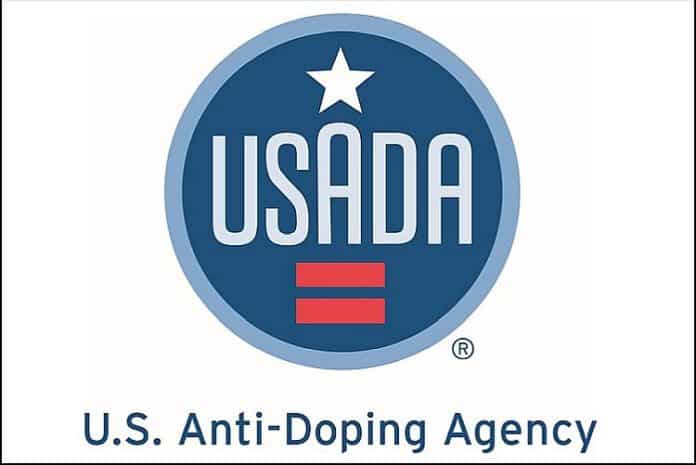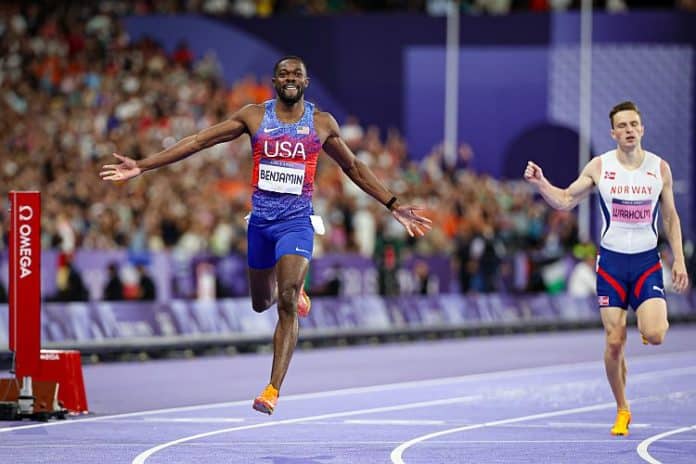★ The Sports Examiner: Chronicling the key competitive, economic and political forces shaping elite sport and the Olympic Movement.★
★ To get the daily Sports Examiner Recap by e-mail: sign up here! ★
≡ COMPLIANCE CONSEQUENCES ≡
Wednesday’s announcement that the U.S. Office of National Drug Control Policy (ONDCP) has not paid its $3.625 million dues for 2024 (covered here) was met with a response from the World Anti-Doping Agency that the U.S. would lose its seats on the WADA Executive Committee and the Foundation Board.
The refusal primarily stems from the continuing tug-of-war over the January 2021 positives of 23 star Chinese swimmers, who received no provisional suspensions – as required by the World Anti-Doping Code – and were ruled by the Chinese Anti-Doping Agency to have ingested the prohibited heart medication Trimetazidine from contaminated food served to them at a hotel, and therefore no sanctions of any kind.
U.S. Anti-Doping Agency chief executive Travis Tygart said in a statement that no U.S. athlete would be impacted by the non-payment of government dues.
However, our story went further, examining the question of whether WADA could hold USADA to be non-compliant, and therefore impose sanctions that could include a prohibition on Olympic Games or world championships being held in the U.S. during such time as the U.S. would be out of compliance.
Not so says Tygart, in a Thursday interview, who explained that this exact issue has – in fact – been discussed in recent months within WADA:
● In September 2024, WADA initiated a consultation process concerning “proposed additions to the 2021 World Anti-Doping Code, which address the matter of voluntary withholding of funding by a government.”
● A document defining terms and possible consequences – including “limitations on the relevant country bidding for major events, as well as restrictions on its government representatives attending major events and sitting on Code Signatory boards/committees etc.” – would require changes to the World Anti-Doping Code. However, the proposals did not advance and were shut down. No changes to the Code were made on this issue.
Tygart explained further, “A private organization – WADA – does not have the authority to require a sovereign country to pay it,” and a WADA working group which considered this specific issue within the last couple of years rejected the imposition of sanctions – by WADA – on athletes competing and on hosting Games, world championships or other events which had already been awarded.
That means there is no threat of a WADA action, holding the U.S. in non-compliance, which would threaten the holding any upcoming world championship or the 2028 Olympic Games in Los Angeles, or the 2034 Olympic Winter Games in Salt Lake City.
Tygart noted a key legal difference in the compliance area regarding dues payments by governments:
“Non-compliance for an anti-doping organization … for not running an effective program or covering up cases, whatever, that’s a different matter. But for purposes of non-payment by a government is not in the compliance structure. …
“The compliance scheme does not cover non-payment by governments to WADA.”
There are also technical questions about whether the U.S. would have to leave its seats on the WADA Executive Committee and Foundation Board due to non-payment as WADA has opined, but these do not impact athletes or events.
This is a good news for those considering a worst-case scenario in the continuing war of words between WADA, USADA, the U.S. government and the Congress, but does not end the discord.
The International Olympic Committee’s added language in its Olympic Host Contract with the Salt Lake City organizers for 2034 still stands, however, allowing termination of the award of that Games if:
“the Host Country is ruled ineligible to host or co-host and/or to be awarded the right to host or co-host the Games pursuant to or under the World Anti-Doping Code or if, in any other way, the supreme authority of the World Anti-Doping Agency in the fight against doping is not fully respected or if the application of the World Anti-Doping Code is hindered or undermined.”
That clause was not part of the host agreement for the LA28 Games.
¶
★ Receive our exclusive, weekday TSX Recap by e-mail by clicking here.
★ Sign up a friend to receive the TSX Recap by clicking here.
★ Please consider a donation here to keep this site going.
For our updated, 895-event International Sports Calendar for 2025 and beyond, by date and by sport, click here!

























